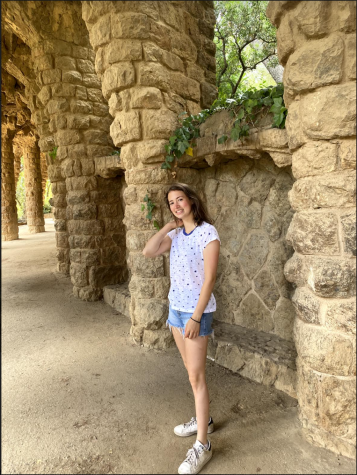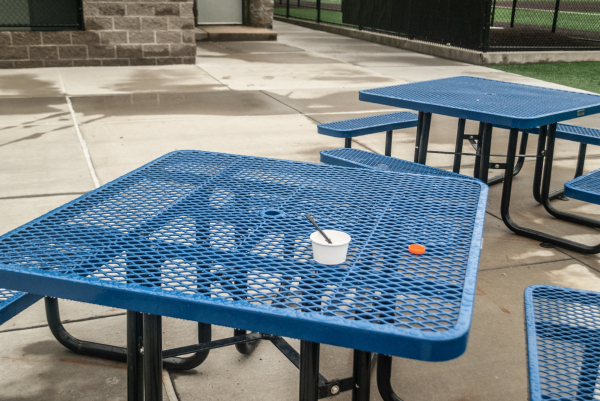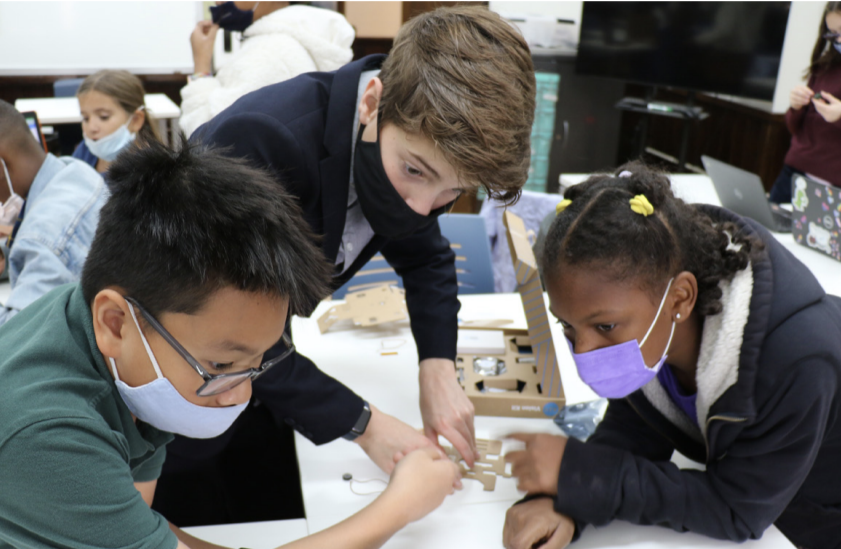Poly Quietly Changes Consequences for Mask Violations
With the Omicron variant spreading rampantly throughout New York and reaching record-high numbers, Poly adopted a strict mask policy upon the return from winter break that sent students home if they did not properly mask-up. This past week, Poly quietly curtailed the practice of sending kids home, first informing faculty on Thursday and notifying students a day later.
In an email to employees on Thursday, Director of Health and Well-being Sarah Zuercher wrote, “Cases at school and in
NYC are declining. Students are wearing their masks much more consistently. We have not seen evidence of major in-school
transmission. Therefore, we will quietly end our practice of sending students home if they are not masked properly. Please do
not announce this to students. Thank you for continuing to remind students to wear their masks. If there is a student who needs multiple reminders, please email me and the student’s dean.”
The Polygon obtained a copy of this email to employees and spoke with Zuercher about its contents on Thursday. In this interview, Zuercher explained the reasoning behind relaxing the policy. “The intent of the policy was always to hold flagrant
non-maskers accountable…We want kids to wear their masks. We never wanted to send students home. Our whole COVID strategy is to keep kids in school,” said Zuercher. “Our calculation is that with cases dropping, we don’t need as strict an enforcement policy. That’s why I told faculty that we can take a step back from this right now. But, also in that email, I asked faculty to email me and their deans if there’s a student who has been given multiple reminders [to wear their mask].”
When asked if students could be sent home when not wearing their masks, Zuercher said, “That is still a possibility.”
Once the message went out to students, Head of the History Department Maggie Moslander expressed her thoughts regarding Poly’s informing teachers before students. “I think there are a lot of things that faculty hear about first just to prep[are] for
changes…I think it’s always important to me that everyone is on the same page…I was glad I knew about it and I was glad
that students found out about it later,” said Moslander.
Head of the Upper School Sarah Bates spoke to the Polygon on Friday morning regarding the decision to not initially inform students of the change. “Now that we are at the end of Omicron, [we] want to start to relax that policy a bit. [We] don’t want to disturb classes, don’t really want to be sending kids home anymore,” said Bates. “Ms.Zuercher, as is protocol, usually releases information to faculty [first]…What we don’t want is kids to be like, ‘OK great,’ and wanderaround without their masks on. Because faculty are experts in their fields and not necessarily in coronavirus or public health, we want that to come from the appropriate person here on campus, [Ms. Zuercher].”
In the middle of the school day on Friday, Zuercher sent a COVID update email to students. She wrote, “Due to our sharply declining rates of COVID, we are now able to adjust our policy. Instead of automatically sending students home, we have asked teachers to report students who require mask reminders to me and the students’ dean so that we can decide on appropriate accountability measures.” She still cautioned students to continue wearing their masks consistently and correctly.
The current shift in strategy comes after confusion among students about disparities in mask enforcement when it was being en-
forced more strictly. Upon the return from break in January 2022, the protocol was that “students who are found violating the protocols will be sent home for the rest of the day,” wrote Zuercher in an email to the Poly community.
“Our goal is to keep the school open, and before winter break, when Delta was the preliminary strain, mask-wearing was not as vigilant amongst the students. We realized that we needed to change to not go virtual like other schools have had to,” Zuercher explained in an interview in early January. “We have been sending between one and 10 kids home from the 7th to 12th grade daily for mask-wearing infractions.”
With the more vigilant mask policy, Poly students had to wear their masks properly, which they still have to do. “The mask should be fitted over the mouth and nose at all times of the day in all school spaces, except Commons [when eating],” said history teacher Max Shmookler. Some students felt they were being sent home just because of minor infractions. While some teachers simply reminded students to put their masks up the first time, other teachers took a more disciplinary approach and sent the student home without a second chance.
“My mask slipped below my nose by accident for a couple of seconds, and I was asked automatically to be sent home. I had no warning and have never come into contact with this teacher before. I understand if a student has had multiple slip-ups, but this [was not the case],” said freshman Sai Bhandari.
Other students mentioned similar incidents. Freshman Justice De Jong said, “I was sent home right before my midterm. I have never spoken to this teacher nor had an issue with my mask. It slipped accidentally and I would have pulled it up right away once noticed. This was really frustrating because I was really stressed for my midterm just to be sent home right before.”
Students understood that teachers were trying only to protect the community, and the mandate required all teachers to send students who create infractions home.
“I have definitely noticed that this mandate has been working because now I am more aware when my mask slips because I don’t want to be sent home. I do understand the premise of sending kids home just to keep us safer,” said sophomore Laila Baluk.
Zuercher further emphasized the policy’s effectiveness in her latest interview with the Polygon.“The impact of the policy to send kids home is that kids are wearing their masks much more consistently…The good thing is that in the past week, the number of students who have been sent home has declined really dramatically, so we really want kids to continue wearing their masks.”
Students, however, found it frustrating that they could be sent home for having your mask under your nose for ten seconds, while Commons is packed with maskless students, indoors, for 30 minutes straight without social distancing.
“We cannot be perfect, but we can be good enough, and in Commons, you are only eating with five to six friends versus walking around the school with hundreds of your other peers, and it is just too cold for us to be eating outside,” said Zuercher in
early January.
Head of School Audrius Barzdukas emphasized the difficulty in completely protecting everyone in the community when asked about the original policy in early January. Barzdukas said, “We’re trying our best with the idea that perfection is the enemy of good. And so what we want to do is try our hardest to keep faculty, students, and staff…and the community as safe as possible while understanding that the safest thing for us to do is sit at home by ourselves. So we are having school, and trying.”

Emma Spring '22 is currently an Editor-in-Chief of the Polygon. She began writing as a staff writer during her freshman year, became the Sports Editor...

Beginning my attributes sophomore year as a staff writer, and acquiring the role as sports editor for the following academic year. I am now the current...

Reese joined the Polygon in her freshman year. She began as a writer, then transitioned to sports editor, and now serves as the news editor. In her...



























